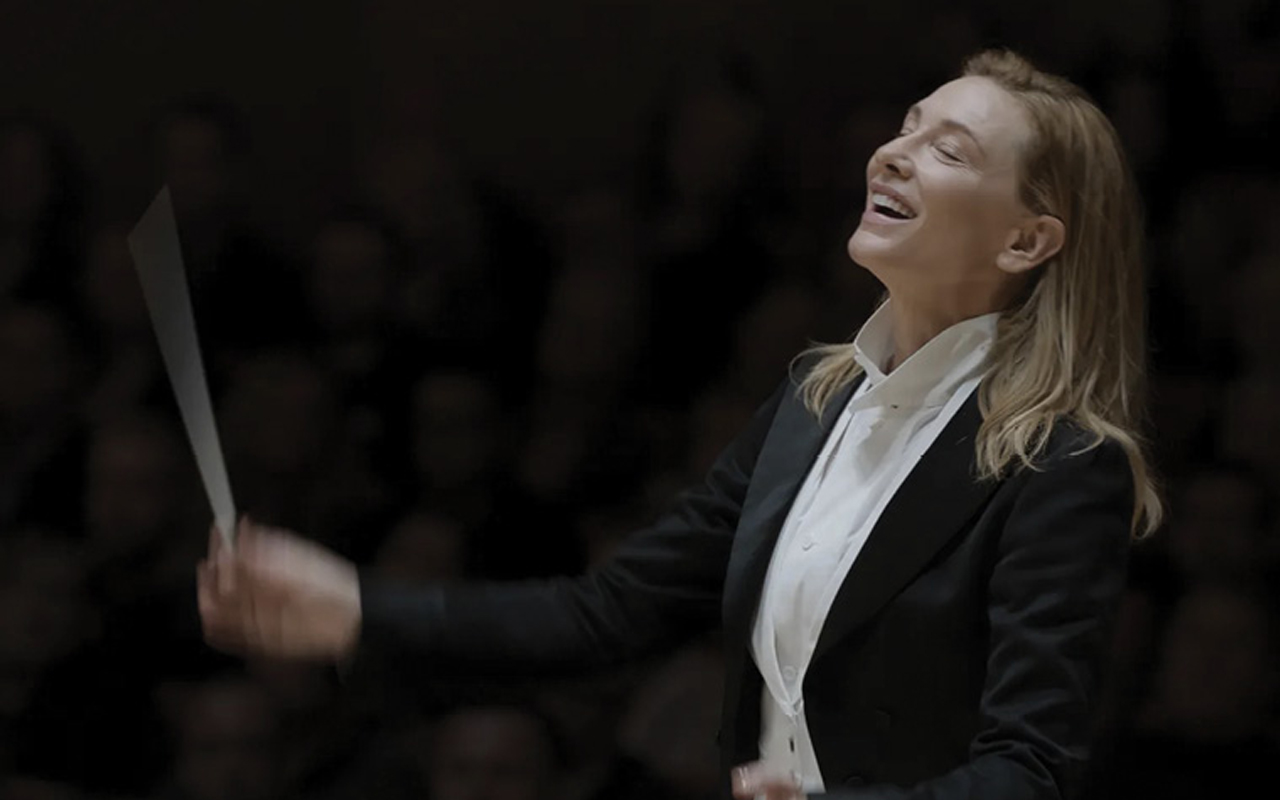
Cate Blanchett’s brilliant performance as the musical genius, Lydia Tár, in this year’s 6-time Oscar-nominated film, Tár, is riveting in its portrayal of a supremely gifted human genius who will ultimately fall on her own sword as she fails to read the temperature in the room amidst the power of the #MeToo movement. The tragedy of her own demise is that she is at the pinnacle of her career as the greatest living composer and conductor of the Berlin Philharmonic Orchestra. She has earned the coveted word ‘maestro’ from musicians and critics worldwide – and it is that edified title that will come crashing down as her own behavioral errors escalate into a tsunami of public backlash.
There is nothing more swirling and mesmerizing than watching Lydia Tár (masterfully acted by Cate Blanchett) coax the Berlin Philharmonic Orchestra to new heights with her artistic baton – eliciting nuances and exquisite interpretations of music that are spellbinding. But behind the façade is a deeply flawed human being whose insecurities play out in her fabulist stories and her cuttingly condescending remarks to a student named Max at the Juilliard School of Music. As Tár tries to prove her point about the responsibilities of musical conducting, she chooses Max as her example of a robotic musician who fails to understand the genius of Bach and other famous composers. But Tár fails to read Max’s body language as his burgeoning anger towards her escalates, and when he eventually explodes under her public humiliation, she dismisses him as another millennial who’s chosen “social media to be the architect of his soul.” Her lack of sensitivity at that moment is in complete contrast to the overwhelmingly intense sensitivity she channels towards music and sound.
The contradictions in Tár’s behavior become starkly evident as the cracks in her confidence surface more blatantly. While she appears to wield her power with aggressive impunity, replacing people and firing them, Tár’s insecurities and basic needs cause her to engage in humiliating behavior in which she becomes an aging sycophant pandering to younger flesh. We see this as she overlooks and offends significantly talented musicians in favor of an attractive young woman for whom she develops a crush. Her verbal language – as well as her body language – have failed to register the changes in society from the #MeToo movement. She is so punch drunk on power that she is blinded and impervious to the inappropriateness of her words and actions, and her own personal flaws and needs increase the velocity of her downfall.
There are so many clever encapsulating visuals of Tár that highlight her power and her blindness to the world around her. While she sleeps in the luxury of her private jet wearing an eye mask, her assistant is warning her about Krista Taylor, a former student of hers with whom she had an inappropriate romantic relationship, who is sending increasingly more urgent and disturbing texts to her teacher. Tár chooses not to heed the warnings, and instead, allows the disturbing situation to escalate.
Her power comes with an emotional detachment in which she throws out important human nuances that will lead to tragedy. When Tár falls for a young Russian cellist, her behavior is so sophomoric in its immaturity that she fails to recognize that the young cellist is simply using her to earn a place in the prestigious orchestra. Tár never gets on Instagram and doesn’t see that the cellist is mocking her on social media. The millennial world of daily public spectacles on IG makes Tár the targeted, surveilled victim and she is oblivious to its ramifications. Tár’s domestic partner tries to wake her up to what is happening around her, but her arrogance makes her deaf to the increasing sound around her.
Around an hour into the film, it is revealed that Tár’s former student and romantic partner, Krista Taylor, has committed suicide. In typical brusque manner, Tár brushes it aside like a non-occurrence – not registering that suicides are serious acts and that there will be an investigation. When she is brought in for questioning, she denies any knowledge of the texts sent by the suicide victim and corners her assistant into lying about everything. Additionally, Max, the student whom she humiliated at Julliard, has taken revenge against the maestro on social media by splicing filmed sound bites of Tár’s inappropriate language and actions with students. Has Max masterfully manipulated the situation? Yes, because if the filmed episodes were set against the backdrop of words said over a protracted period of time, they would not appear so offensive. But all put together in a short time capsule, they tell a different story.
Despite criticism leveled at Cate Blanchett by some female conductors at what they perceive as her “offensive” interpretation of a gender that has been historically overlooked in orchestral conducting, Blanchett fired back with this comment: “The film and the story are not gender specific.”
So, is this a story about the internet, the #MeToo movement, and cancel culture? Yes, it is partially. It’s about the volcanic eruption of a brilliant conducting career because of sexual improprieties, and the abuses of power. Behavior that was tolerated ten years ago is no longer tolerated. A revolution has taken place worldwide in which there are firm checks and balances to ensure that there are no more gray areas in which power and manipulation can flourish. There’s a lot of discomfort in society about cancel culture. Many people believe that it’s been taken too far and that everyone is now afraid to speak or act in case the Me Too police are watching. Tár’s life is destroyed and undone by a new world with zero tolerance for behavior that used to be commonplace.
But I view the superb film as much more than Tár’s fall from cancel culture. She would probably have fallen sooner than later from many of her human failings. This is a highly intelligent, gifted person for whom life has bestowed much. Her narcissism blinds her to her own shortcomings. Her brilliance could have been used to edify an up-and-coming generation. Instead, she chose to insult her minions with a cuttingly sharp tongue. She displayed biases and favorites. She destroyed the careers of some of the people she led because she labeled them inaccurately and swept them out of her ambitious path. She was a relentless bully who indulged her own separated-from-reality fantasies. The scene in which she threatens one of her young daughter’s classmates – cuts chillingly into one’s bones. It’s imperiously cruel and unforgiving.
This is a penetrating character study in which Tár’s insular world couched and protected her sense of superiority. It became so extreme that she became increasingly blinded to the reality of what was happening around her. Ultimately it was her narcissistic ego that caused her downfall. Cancel culture accelerated the inevitable. The conductor created her own crisis.
Cate Blanchett owns the character magnetically and the film’s 6 Oscar nominations endorse why this film is so important.

Cate Blanchett as Lydia Tár






